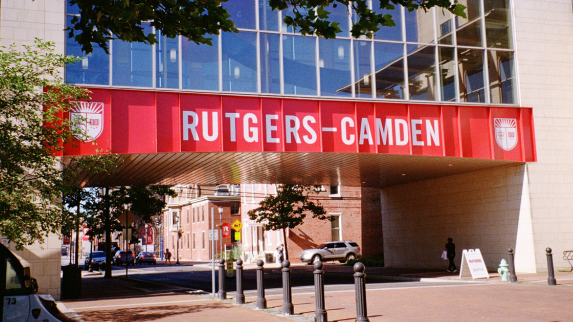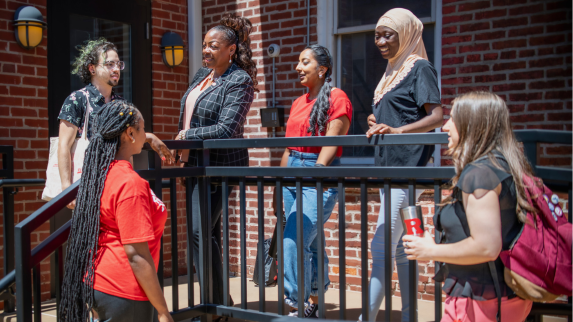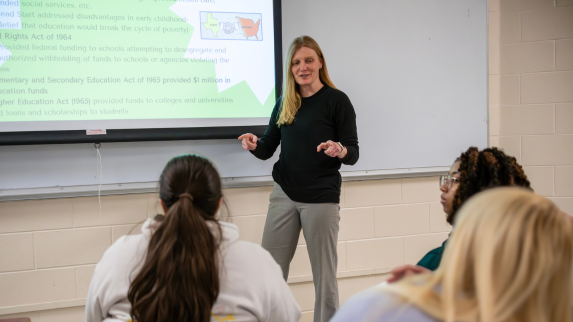History That Speaks: Unearthing Voices Lost to Time
From uncovering the lives of past occupants in historic homes to tackling the overlooked narratives of entire communities, Sebastian LaVergne has turned their passion for history into a mission to amplify voices from the margins. A South Jersey native and Rutgers University-New Brunswick alumnus, Sebastian is now pursuing an M.A. in Public History at Rutgers University-Camden. As a key contributor to the One House, Many Homes project, they have uncovered the layered history of the Graduate School House, blending meticulous research with storytelling that connects the past to the present. Ready to dive deeper into Sebastian’s journey and the impact of their work? Read on to discover more.
A Journey from Veterinary Science to Historical Storytelling
Sebastian is in their final semester of the Public History Master’s Program. They began their academic journey studying pre-veterinary medicine at Rutgers University-New Brunswick but later transitioned to history with a minor in criminology. This change stemmed from a deepening interest in the social forces that have historically shaped perceptions of criminality—such as the criminalization of sexualities and genders, as well as racialized crimes rooted in societal beliefs and taboos rather than legal statutes.
Sebastian chose Rutgers University-Camden for graduate studies because it is one of the few universities offering a Master’s in Public History. As a Rutgers alumnus, transitioning to a new campus felt seamless and familiar.

Related to this Story:
Giving a Voice to Overlooked Histories
Throughout the program, Sebastian has delved into case studies that underscore the importance of their work in helping communities learn about themselves and others. Their efforts focus on amplifying voices often overlooked and shedding light on challenging conversations the public may avoid.
Sebastian has developed innovative methods for interpreting history, creating pathways for sharing information with audiences both within and outside academia. They are particularly drawn to difficult historical topics that provoke public and media interest, whether rooted in the past or reflecting contemporary issues. With a passion for facilitating and mediating these discussions, Sebastian’s aspirations include working as a professor and historical researcher, with a focus on multimedia projects.
Researching Stories That Matter
During their undergraduate studies, Sebastian interned at East Jersey Old Town Village in Piscataway, NJ, where they researched agricultural practices involving corn and broom sorghum from 1600 to 1860. After earning their degree and joining Rutgers’ master’s program, they contributed to the Mid-Atlantic Regional Center for the Humanities (MARCH) Historical House Project. Their work focused on uncovering the history of the occupants at 211 N. 5th Street (now the Graduate School House) from 1890 to 1990.
Currently, Sebastian is collaborating with another Public History student to build a database and framework for the Lawnside Project, a partnership with the Digital Studies Center. This project aims to support future researchers and volunteers exploring the history of Lawnside, NJ, a community with a rich Black heritage.
Spotlights & Stories

Want more stories like this? Spotlights and Stories highlights alumni, faculty, staff, and student experiences through stories, video, and voice. Learn more
Explore Graduate School Programs

Rutgers Graduate School-Camden offers 20+ graduate certificates, master’s, and doctoral programs across various disciplines, including biology, data science, creative writing, and psychology. We take pride in our academic diversity. Learn more
Former Students, Get Involved

Stay connected with Rutgers-Camden! Engage with former students, attend events, and support current students. Your involvement strengthens our community and helps shape future success. Learn more
